
[ad_1]
The Distress Index was created by Arthur Oken, an economist who labored for the Johnson administration within the Sixties.
It’s purported to measure how residents are doing economically by including up the unemployment price and the inflation price. Right here’s the information going again to the late-Nineteen Forties:
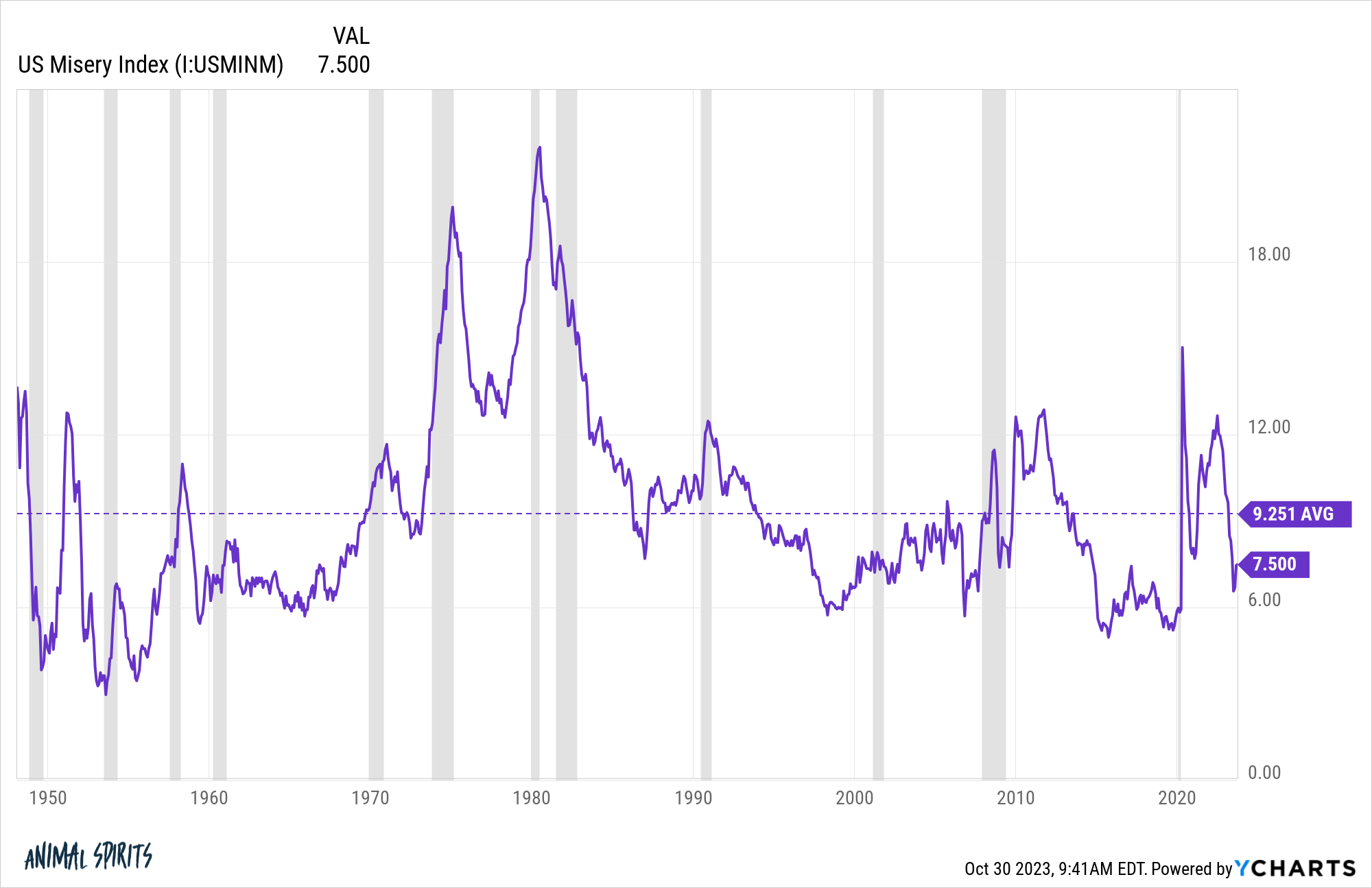
It could come as a shock to some people who we’re really beneath common proper now.
Actually, a sub-4% unemployment price helps however the inflation price has additionally come down.
We’re in a bizarre place in relation to how individuals really feel and what the financial knowledge are displaying.
The newest GDP report final week confirmed financial progress within the third quarter was 4.9%. Taking out the whipsaw from the pandemic, that was the best financial progress we’ve skilled since 2014.
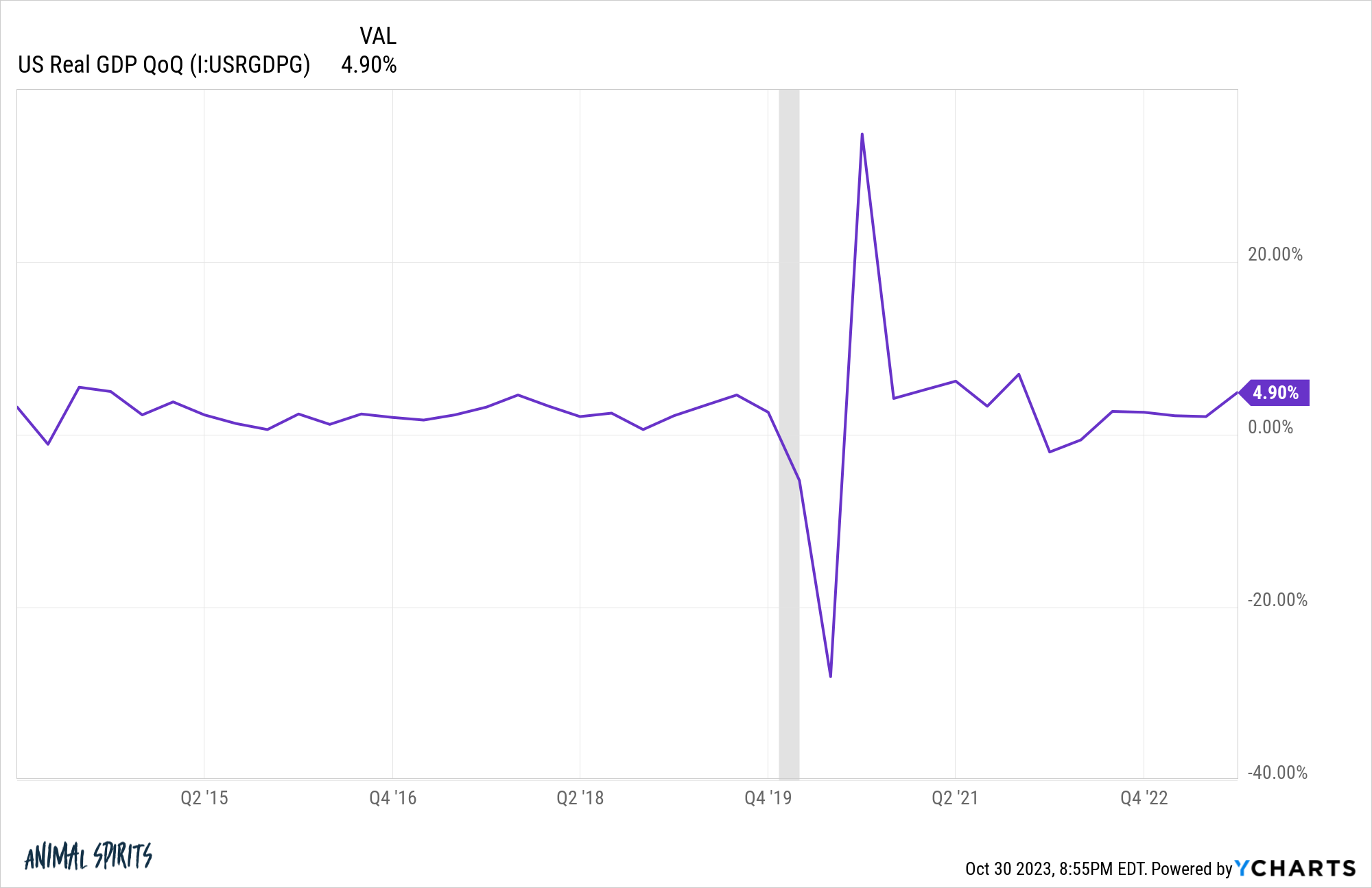
Going again to 1948, the unemployment price has been larger than the present 3.8% in 90% of all readings. That’s fairly good.
Issues may at all times be higher and will worsen any day now however, objectively, we’ve been in a robust financial system for a while now. Many individuals assumed we have been already in a recession final 12 months but progress has solely accelerated in 2023.
The divergence between sentiment and financial knowledge needs to be as huge because it’s ever been.
The Economist created this glorious chart that tracks sentiment and financial knowledge over time:
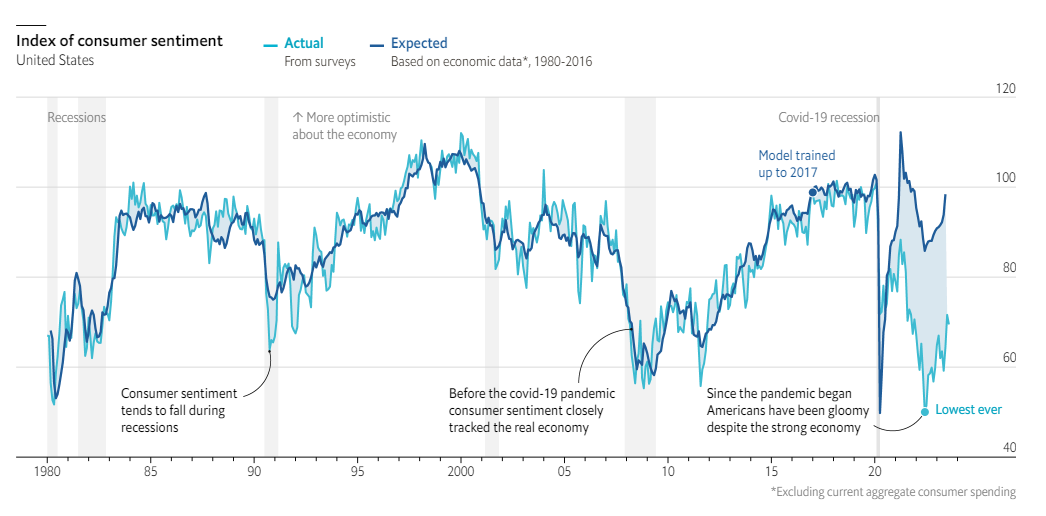
The 2 measures tracked each other carefully for 40 years proper up till the pandemic. Since then, the vibes don’t agree with the information.
Inflation is the plain offender however there needs to be extra to it than that. The inflation price averaged 5.6% within the Nineteen Eighties. Since 2021 it’s averaged 5.7%. We’re nonetheless a great distance off from the Seventies when the annual inflation price averaged greater than 7%.
It doesn’t assist that the media has been telling everybody a recession is imminent for the previous 24 months.
The pandemic definitely screwed with our collective psyche as effectively.
However I need to concentrate on the financial aspect of the equation right here to point out why the psychology of sentiment is out of whack proper now.
The entire concept of “the financial system” remains to be a comparatively new phenomenon. Gross home product didn’t actually even exist in the best way we give it some thought till the aftermath of the Nice Melancholy when economists determined it will be a good suggestion to trace financial progress.
“The financial system” for most individuals was roughly private. Your private financial system nonetheless issues an awesome deal in relation to gauging financial sentiment, however now we’re overwhelmed over the pinnacle each single day with scary headlines and tick-by-tick modifications to every thing.
Nobody acquired breaking information or alerts prior to now when GDP or inflation got here in 0.1% off the estimates. For many of human historical past individuals mainly needed to guess how the financial system was doing.
And though individuals weren’t being attentive to these things on a regular basis prior to now, they have been most conditioned to cope with financial volatility as a result of the financial system was extra risky.
The Nationwide Bureau of Financial Analysis has an inventory of financial expansions and contractions for the U.S. financial system going again to the 1850s. Check out how the common size of each the recessions and the expansions has modified over time.
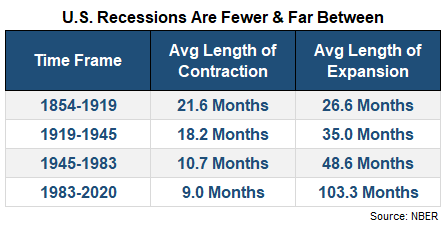
The expansions are getting longer. The recessions are getting shorter.
Not solely have been the recessions longer prior to now however the magnitude of the declines have been far more important.
From 1854-1945, the common GDP contraction throughout a recession was -23%. Since 1945, we’ve seen GDP fall by a median of simply 3.7% (and that features the 19.2% decline within the short-lived 2020 pandemic-induced recession).
Within the 1870s, the aptly titled Lengthy Melancholy lasted for 65 months with GDP falling a surprising 34%.
The enlargement following that godawful downturn lasted lower than three years earlier than one other melancholy hit that lasted greater than three years. The U.S. financial system was in a recession roughly three-quarters of the time for greater than a decade.
Are you able to think about if that occurred at the moment?! Folks would lose their minds.
Now we now have decade-long financial expansions.
Earlier than the transient 2020 downturn, it had been over a decade for the reason that final recession led to June 2009. There have been six years between the 2001 recession and the beginning of the Nice Monetary Disaster in 2007. It was a decade between the top of the recession in 1991 and the beginning of the subsequent one in 2001. There was practically a decade between the top of the 1982 recession and the beginning of the recession in 1990.
Since 1983, there was a grand complete of 4 recessions or one each ten years or so.
This can be a good factor however it additionally means we’re not used to financial volatility the best way individuals have been prior to now.
Have a look at how far more risky the inflation price was within the pre-Sixties period:
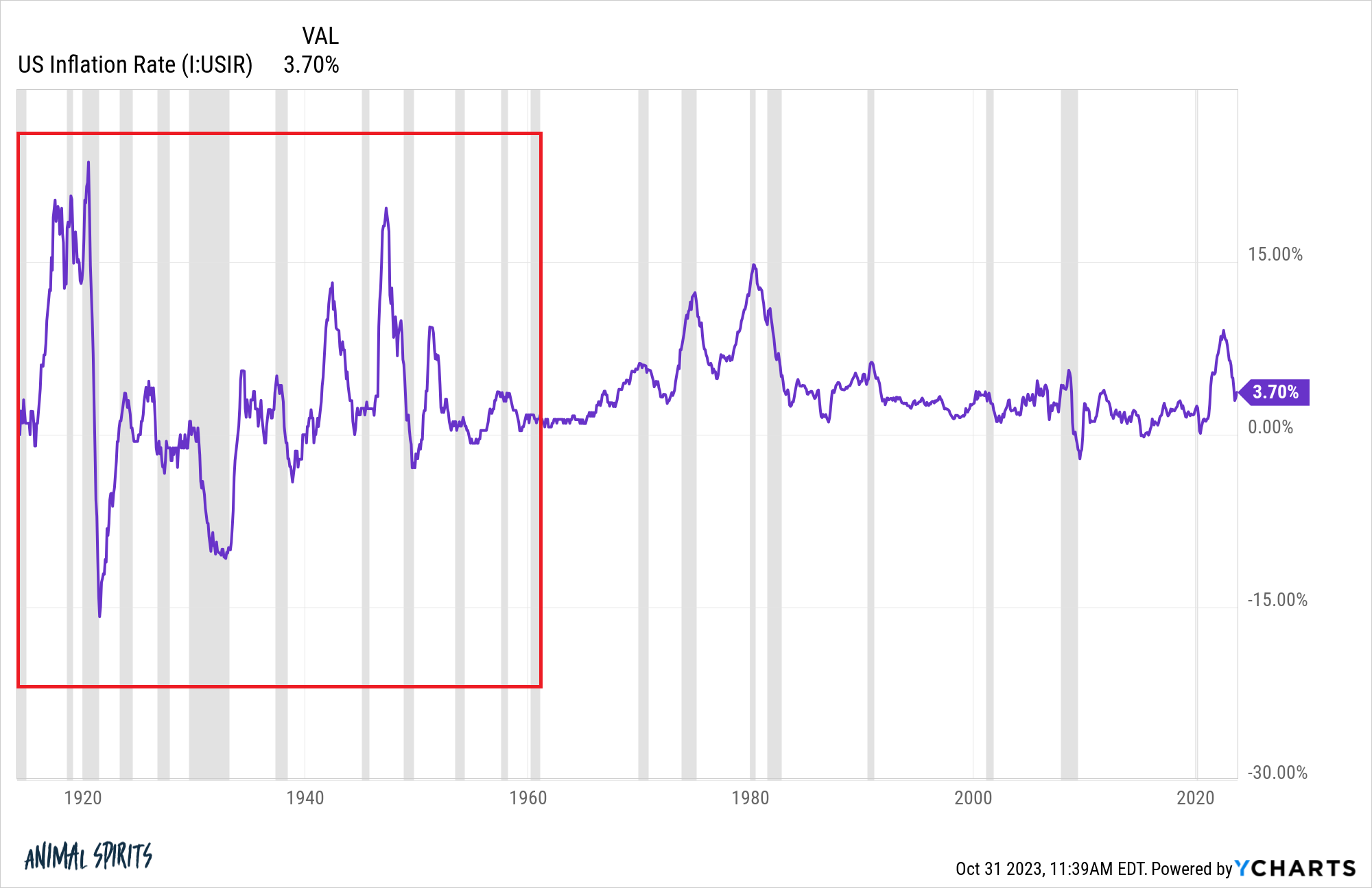
It was a continuing back-and-forth between massively excessive inflation and bone-crushing deflation from the entire wars, recessions and depressions.
I do know individuals like to complain in regards to the Fed and authorities spending however our financial system actually is far more steady today than it was prior to now.
Each previous era thinks the younger generations are smooth. Once I was your age…
Most individuals don’t understand that is really an indication of progress. Future generations must be softer than earlier generations as innovation and laborious work make our lives simpler than they have been prior to now.
Possibly we’ve grow to be just a little complacent as a result of there hasn’t been practically as a lot financial volatility in fashionable instances as earlier generations have been compelled to cope with.1
And that’s factor!
I hope the pandemic-induced financial volatility is the outlier and financial volatility settles down going ahead.
Everybody and their brother has been predicting a recession for the previous 24 months and complaining in regards to the state of the financial system.
Possibly the silver lining of the financial volatility we’ve skilled and the divergence between sentiment and financial knowledge is extra households can be ready when that subsequent downturn really hits for actual.
Additional Studying:
Individuals Have By no means Been Wealthier & No One Is Glad
1I’m certain lots of people are going to disagree with me right here however it’s true.
[ad_2]
Supply hyperlink